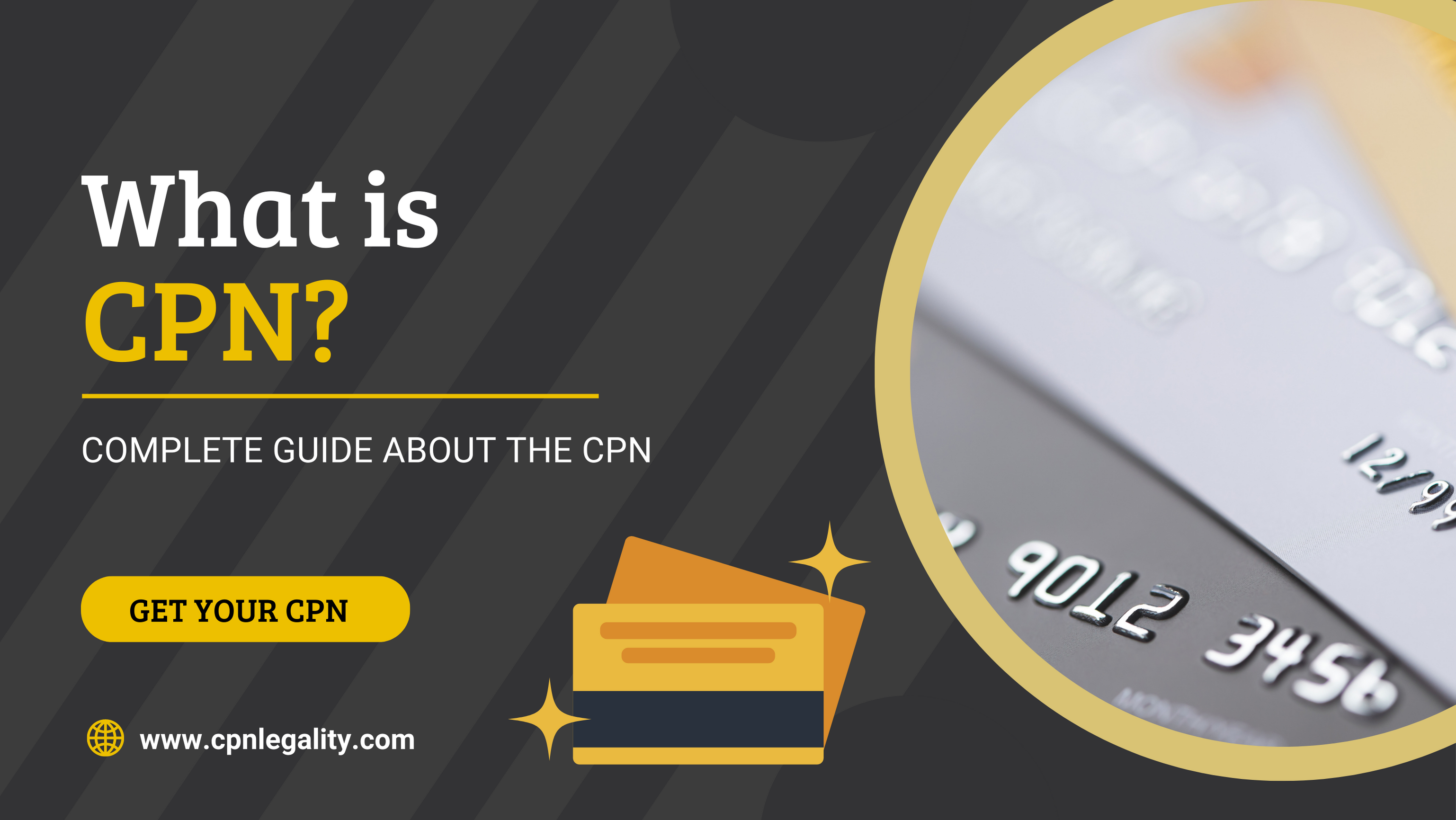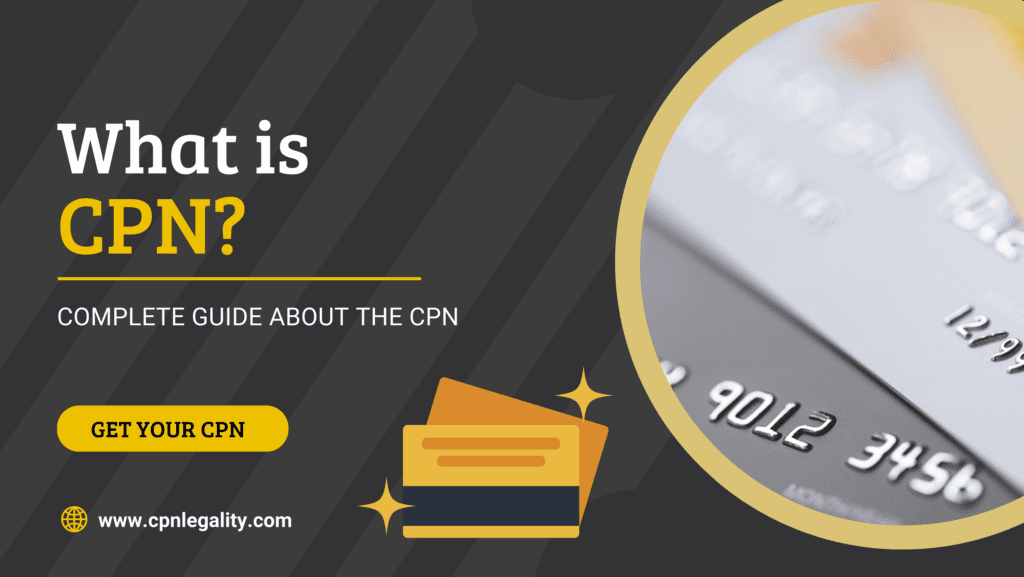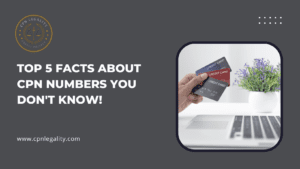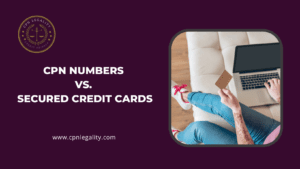
3-Step Formula to Financial Success With CPN Numbers
Achieve financial success with our 3-Step Formula leveraging CPN Numbers for a secure and prosperous future.

In the world of personal finance and credit, you may come across the term CPN, which stands for Credit Privacy Number or Credit Profile Number. CPNs are often misunderstood and surrounded by controversy, so it’s important to have a clear understanding of what CPNs are, how they work, and the implications of using one.
In this article, we will provide an overview of what a CPN is, explain how CPNs work, and delve into the process of obtaining one. We will also discuss the benefits and risks associated with using a CPN, compare it to Social Security Numbers (SSN), and provide guidance on how to safely use a CPN.

A CPN is a nine-digit number that resembles a Social Security Number. However, it is important to note that CPNs are not issued or recognized by the government. Instead, they are generated by private companies and marketed as an alternative to SSNs for certain purposes.
The purpose of a CPN varies depending on the individual. Some people may use it for privacy reasons, while others may use it to build or repair their credit history. However, it’s crucial to understand the legal and ethical considerations surrounding CPNs.
A CPN is often marketed as a way to establish a new credit identity, but it is important to note that using a CPN for fraudulent purposes is illegal. It is advisable to use your legitimate Social Security Number (SSN) when engaging in financial transactions to avoid legal and financial consequences.
CPNs typically consist of a nine-digit number, often referred to as a “secondary credit number.” These numbers are often created using an algorithm that follows a specific pattern but does not correspond to any legitimate government-issued identification.
While CPNs are not illegal in themselves, their use can be subject to legal scrutiny. It is important to distinguish between legitimate uses of CPNs and illegal activities such as identity theft or fraud. Understanding the legal and ethical boundaries is crucial when considering using a CPN.
Here we tell you how you can get your CPN easily:
Before obtaining a CPN, it’s important to be aware of its legitimate uses. Some instances where a CPN may be necessary include certain types of business registrations, opening a bank account, or applying for credit in specific circumstances.
Obtaining a CPN involves several steps. These may include researching reputable companies that provide CPNs and paying a fee. However, it’s important to note that not all companies that offer CPNs are legitimate, and some may engage in illegal or unethical practices.
Here you know what are the benefits you get with having a CPN number:
One of the main reasons people choose to use a CPN is for privacy and identity protection. By using a CPN instead of an SSN, individuals can avoid sharing their personal information with potential creditors or other entities.
Another benefit of using a CPN is the potential to build or repair credit. Since CPNs are not tied to an individual’s credit history, they can be used to establish a new credit file or start over after a bankruptcy or other negative credit event.
Finally, using a CPN may provide certain business opportunities, such as being able to register a business without using an SSN or establishing a separate business credit file.
One of the main risks associated with using a CPN is the potential for illegal activities, such as identity theft or fraud. It’s important to use a CPN only for legitimate purposes and to be aware of the legal boundaries surrounding its use.
Another risk associated with CPNs is the potential for credit repair scams. Some companies may advertise the use of a CPN as a quick fix for bad credit, but in reality, there is no guaranteed way to improve one’s credit score.
Using a CPN for illegal activities or purposes can result in legal consequences, such as fines or even imprisonment. It’s important to understand the potential risks before using a CPN and to use it only for legitimate purposes.
While CPNs and SSNs may appear similar, there are several key differences between the two. CPNs are not issued by the government, while SSNs are. Additionally, CPNs are not tied to an individual’s credit history, while SSNs are.
In general, individuals should use their SSN for all legal and financial transactions, as it is the recognized form of identification in the United States. CPNs should only be used in specific circumstances where their use is allowed and appropriate.
To safely use a CPN, individuals should take steps to protect their number, such as keeping it confidential and avoiding sharing it with unauthorized parties.
Using a CPN legally and ethically involves understanding its legitimate uses and boundaries. Individuals should only use a CPN for specific purposes where its use is allowed and appropriate.
There are several common myths surrounding CPNs, such as the belief that they can be used to erase bad credit or that they are a guaranteed way to improve credit. These myths are not supported by facts and should not be relied upon when considering using a CPN.
It’s important to understand the facts and debunk misinformation surrounding CPNs. By having a clear understanding of what they are and how they work, individuals can make informed decisions about whether using a CPN is appropriate for their specific situation.
CPNs are not government-issued identification numbers but rather nine-digit numbers generated by private companies. They are marketed as alternatives to Social Security Numbers (SSNs) for specific purposes. It’s important to understand the legal and ethical considerations surrounding CPNs before considering obtaining one.
CPNs can offer benefits such as privacy and identity protection, credit building and repair opportunities, and certain business advantages. However, there are risks and limitations associated with using CPNs. Engaging in illegal activities or falling victim to credit repair scams can lead to serious legal consequences.
It’s crucial to distinguish between legitimate uses of CPNs and illegal or unethical practices. CPNs should only be used for specific purposes where their use is allowed and appropriate. Safeguarding the CPN, keeping it confidential, and understanding the boundaries of its use is essential for safely utilizing it.
Furthermore, it’s important to debunk common myths and misconceptions about CPNs. They are not magical solutions to erase bad credit or guaranteed ways to improve credit scores. It’s crucial to rely on accurate information when making decisions about using CPNs.
In conclusion, CPNs can serve certain purposes for individuals, but it’s important to proceed with caution and adhere to legal and ethical guidelines. Understanding the implications, benefits, risks, and limitations of using a CPN will enable individuals to make informed choices that align with their specific needs and circumstances.
A: No, CPNs should only be used for specific purposes where their use is allowed and appropriate. Your Social Security Number remains the primary form of identification for legal and financial transactions.
A: No, using a CPN does not guarantee an improvement in your credit score. Building and improving credit requires responsible financial management and adherence to credit guidelines.
A: No, not all companies offering CPNs are legitimate. It’s important to research and choose reputable companies if you decide to obtain a CPN.
A: No, using a CPN for illegal activities such as identity theft or fraud can lead to serious legal consequences. CPNs should only be used for legitimate purposes.
A: No, your Social Security Number remains your primary identification number, recognized by the government. CPNs should only be used in specific circumstances where their use is allowed and appropriate.
Stay tuned for more information!

Achieve financial success with our 3-Step Formula leveraging CPN Numbers for a secure and prosperous future.

Uncover hidden truths with the top 5 facts about CPN numbers that you never knew in this revealing exploration.

Discover the ins and outs of buying CPNs – Are they right for you? Explore the world of CPNs and their implications.

Comparing CPN Numbers and Secured Credit Cards – Uncover the best credit-building options and make informed financial choices.
Call us now!
©2023 by CPN Legality. Managed by Abaani Tech